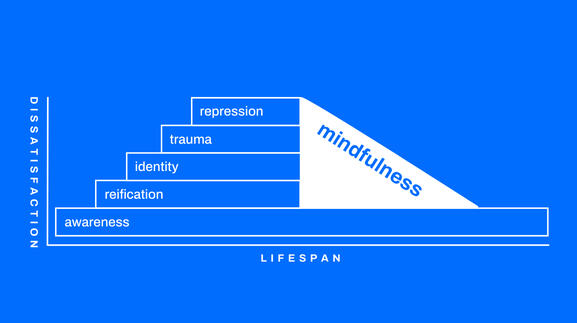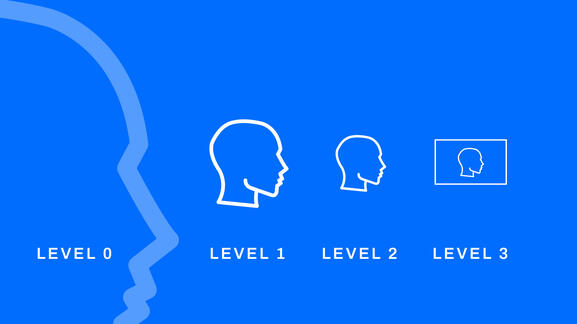not a subscriber?
join 650+ readers dedicated to realizing effortless wellbeing (and improving their effectiveness, clarity and happiness).
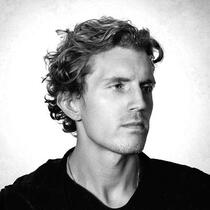
Dan Koe
7-Figure Brand Advisor
2M Followers
★★★★★
"If you want practical and sustainable strategies to bring more peace, calm, and happiness into your life – Goldfield is your guy."

Alex Mathers
SELF-HELP AUTHOR
114K FOLLOWERS
★★★★★
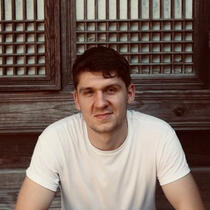
Takezo
Meditation coach
84K Followers
★★★★★
3 lessons on happiness from a senior monk
written by dan goldfield 29th of september 2023
read time: 13 minutes

i spent the whole of my 20’s in pain.the pain was caused by tension.the tension was caused by stress.i woke with backache. i went to bed with backache. i did everything in between with backache.it got so bad that i’d sneak off after performances at huge music festivals to find a dark spot where i could lie on the ground to get some relief.everyone else was partying and networking with celebrities.i was trying not to look like i couldn’t handle the work.imagine Clark Kent or Peter Parker, but instead of hiding that they’re extraordinarily capable, they’re hiding that they can barely make it through the day.when i wasn’t working i was spending as much time as i could in—or at least on—my bed.i had no motivation to further myself or my career (i was barely sustaining the level i was at).i had no energy or emotional availability for my ex, family or friends.i felt like i had no reasons to smile.but the worst of my problems wasn’t the problems themselves. it was what i was using as solutions:🔹 obsessive video gaming
🔹 booze both out and at home
🔹 partying till sunrise at least once a week
🔹 cheap, shitty foodspoiler: these aren’t solutions.but i didn’t know any better.i was trapped in a cycle of struggling through my work then using cheap gratification to nurse myself.and all the while i wondered why i was feeling worse and worse.the root problem with this pattern is that no amount of momentary pleasure ever brought anyone lasting happiness.this is because gratification—by its nature—comes and goes.i, like everyone else, was seeking something more stable and dependable. (but i, like everyone else, didn’t know that.)so i did the best i could with what i had.i was trained by my culture to balance bad times with cheap pleasures.but the old wisdom teachers knew this could never work. and now science does too.a 2020 study on happiness found that:
“eudaimonic (long-term) motives were positively associated with life satisfaction and meaning in life, but hedonic (short-term) motives were not significantly associated with either indicator of well-being.”¹
the road to happiness
in 2014 i’d finally had enough of being stuck. so i started to look for guidance.first i tried guided meditations.second i saw a chiropractor.third i enrolled on a $21,139 personal development course (even though i didn’t have the money).fourth—and most importantly—i made contact with my first mindfulness teacher, Dhammarato.Dhammarato lived as a monk for 8 years at a beautiful forest monastery called “Wat Suan Mokkh” in Surat Thani, Thailand.he’d been sent out of the monastery to teach the inner circle secrets over the internet, and i was fortunate enough to be one of the first to benefit.he taught me enough lessons for a month’s worth of posts, but today i’m going to share with you the top 3 on the subject of happiness.
lesson 1: no amount of stuff can make you happy
Lie: "When I get [X], then I'll be happy"
— Sahil Bloom (@SahilBloom) January 14, 2023
It's easy to convince yourself that your happiness is contingent upon external milestones.
• Money
• Promotion
• Fancy stuff
These "when, then" traps are dangerous.
These things won't make you happy. Real happiness is from within.
many people only feel satisfied when they have “all their ducks in a row”.this metaphor represents the circumstances of your life being as you want them.i love it because it demonstrates how stupid the typical way of thinking is.why?because one or more ducks will inevitably wander off.it doesn’t matter how many times you put them in a row: it’s not their nature to stand in a row.to take this further, it’s not the nature of anything to line up neatly for very long.so as long as your happiness depends upon things being a certain way you’re bound to be dissatisfied.let’s also consider the ducks themselves.most people don’t give a shit about ducks.but a dude called Phil Robertson made his whole career around ducks. he even had a tv show called “duck dynasty”.ducks, themselves, don’t have the power to make anyone happy.nor do motorbikes, video games or cocktails.we each interpret happiness from the things we encounter in the world.and this is just mental process (which is entirely flexible).your tastes have changed over time. (no doubt what gave you happiness as a kid is now irrelevant to you.)in the other direction, people overcome phobias by means of exposure therapy.your interpretation of something is all that matters in whether you derive happiness from it.in other words, the thing itself—the duck, no matter where it stands—has no inherent power to make you happy.when i saw this for myself it was suddenly easy to see how my coping mechanisms were harming me.but that led to a difficult realization…when i stopped distracting myself with coping mechanisms it became clear how unfulfilled i was.so i’d received my first lesson, but this gave rise to two new burning questions:1. how did i get here?
2. how i actually find happiness?
lesson 2: beliefs are nothing but trouble
The stronger your current beliefs, the weaker your future insights.
— James Clear (@JamesClear) May 6, 2020
The hand that clings to an old friend cannot embrace a new one.
it became clear to me as i continued speaking with my monk friend that i’d been brainwashed by my culture. (there was no malice in this. people just didn’t know better.)the most problematic belief was the one at the root of all my dissatisfaction. it’s at least as old as judaism and it’s now so entwined into western culture that it’s part of our collective identity:“i was born broken and must fix myself.”in other words, “original sin”.but this new teacher of mine had been immersed in the wisdom teachings of an entirely different culture. and he asked me what happened if i dropped that belief.“what if,” he asked, “the opposite is true?”“what if you were born perfect but then convinced there was something wrong with you?”i could barely conceive of the possibility.i’d spent so long trying to fix myself, trying to make myself acceptable, trying to plug the void inside with potato chips that it seemed crazy to imagine none of it was necessary.and if none of it was necessary that would mean i’d wasted so much time.this teacher and i spoke on this subject over many months.slowly i became able to consider the possibility that i was just fine as i was, and in all my attempts to change myself i’d been like a dog chasing its tail.“but then what about building useful things? what about making a contribution to society?” i asked. “if i’m fine as i am why would i bother to do anything? why wouldn’t i just hang out at the bar all day?”“well,” said my teacher, “the Buddha was pretty well convinced that he was fine as he was. but he still walked up and down India giving thousands of teachings!”“why?” i asked.“because he saw that it was a good thing to do!” Dhammarato replied, “he was fine either way. but with compassion and reasoning it was clear to him that sharing wisdom was better than not sharing wisdom.”“feeling bad isn’t the only motivation for doing something dan.”i was stunned by that last sentence.feeling bad isn’t the only motivation for doing something.for 30 years i’d been trained into feeling guilty, inadequate, anxious if i didn’t do things.the idea that i could do stuff on the basis of positive motivations like compassion didn’t even compute with me at first. the idea was completely outside my conception of how life could be lived.so i spoke with this teacher many more times about this idea and gradually it sunk in.first i understood it intellectually, then i got to testing it in my direct experience.this was a gradual process that took over a year. when i tested letting go of my negative motivations i felt like i was playing a game of “chicken” with myself.the idea of doing nothing was so hated in my culture that i was afraid to be seen as lazy.hell, i remember traveling hundreds of miles on weekends playing shows, then feeling i couldn’t take a delivery in my dressing gown on a monday morning!each time i let go a little i’d snap back into bullying myself to make things happen.but i kept speaking with my teacher. i kept reading books about letting go. and i kept practising mindfulness.over time i started to gain evidence that there was another way to live my life. i saw that when i truly relaxed there was a purer motivation: the motivation of mutual benefit.i saw that i am, by my nature, kind and good-hearted. that i want to do what’s best for other people and that this is doing what’s best for myself.i couldn’t believe how far i’d been led astray. the sense of liberation was almost overwhelming. no longer did i have to try to force myself to do things. i could simply let go and see, more and more, that there was a naturally-arising, compassionate motivation for doing things.but there was a catch.i found compassion to be a wonderfully potent fuel for getting things done… but only if those things were aligned with my true core values.unwholesome motivations (like my desire to impress people as a musician) simply could not survive. that motivation was selfish. trying to run it on compassion, i found, was like trying to run a diesel motor on petrol. it coughed and spluttered and eventually died.wholesome motivations though, like entertaining others, teaching others, healing others—these began to naturally dominate my life. (the culmination of this is that i’m here writing to you about wellbeing every day.)so i’d seen for myself that believing i had to whip myself into action was nothing but trouble. it was difficult to identify that as a belief because it was normalized in my culture. but once i did—once i shined the light of new wisdom on it—the immense trouble it had caused me for 30 years was plain to see.other beliefs that fell away were:🔹 that i had to follow society’s rules to make money
🔹 that i had to act a certain way for people to like me
🔹 that i had to be consistent with my past self
🔹 that i had to try to predict the future to avoid bad outcomes
🔹 that i had to justify my ways of thinking and behavingletting go of these beliefs was a massive relief.and this prepared me for the next important lesson…
lesson 3: becoming happy is a subtractive process
“I teach only dissatisfaction and the end of dissatisfaction.”
-Buddha (Alagaddūpama Sutta MN 22)
it’s written that the buddha said the above to a large assembly of monks, which tells us the statement was important.his meaning is simple, but not always easy to grasp if you’re caught in the typical way of seeing things.the buddha’s teaching on dissatisfaction was that all things are inherently dissatisfying.say you’re obsessed with ben & jerry’s chocolate fudge ice cream.🔹 when you don’t have it, you want it.
🔹 when you have it, you fear someone else will take it from the freezer for themselves.
🔹 when you’ve eaten it all, you want more.this is only a problem as long as you’re attached to your ice cream.in other words, it’s totally cool to get ice cream.but when you’re not okay if you don’t get ice cream you have a problem.the other part of the buddha’s teaching—the end of dissatisfaction—is that attachment is optional.you do not have to care so much about things. it might not feel optional, but it is. because caring about something is just a mental/emotional process.some people care about politics. others care about getting laid. others care about ducks. and all these people have seen changes in what they care about throughout their lives. some have even deliberately changed what they care about (and those people are onto something.)what the buddha’s quote (and my own experience, and that of my hundreds of students) tells us is that becoming happy is a subtractive process.you don’t have to do anything to be satisfied.you just have to stop wishing things were different (AKA being dissatisfied).
the simple truth of enlightenment
when my teacher’s teacher was asked straight “are you enlightened?” he replied:“i don’t know if i’m enlightened. i only know i’m not dissatisfied.”what more could you want?think about it: what would your life be like if you weren’t dissatisfied with anything?in the absence of dissatisfaction your true nature is revealed, and it’s one of contentment, clarity, calmness and effectiveness.i tested this thoroughly in my own experience.it sounded too good to be true at first.but the more i relaxed—the more i let go of wishing things were different—the more my life blossomed into a powerful expression of natural mutual benefit.
i don’t even do “spiritual practice” any more
i dissolved the apparent boundary between meditation and non-meditation. which means i’m either meditating all the time or not at all, depending on which way you look at it.it turns out meditative stability is our natural condition. in other words, everything is known just as it is when we’re not busy interpreting, judging, labelling, describing it.this doesn’t mean i don’t face challenges. (i run a business!) but none of those challenges are ever struggles.by letting go until there was nothing more to let go of i revealed the natural happiness that is my true nature.i don’t have to do anything to be happy. and neither do you. pretty cool, huh?of course, like i did, you’ll have to prove this to yourself. even if you wanted to just take my word for it, that wouldn’t be enough.one day, like me, you’ll look back and say “wow, i haven’t been sad in years!”so how do you get there?
how to realize effortless happiness
rest naturally without seeking or describing anything, just for a moment. then another. then another…really, that’s all you need to do.this is the essence of all meditation.but if you’re like most people, this will sound too simple. if you’re like i was, you’ll have one or more objections to that simple instruction.“but if i just relax i’ll never get anything done!”“but if i just relax i’ll never get enlightened!”“but if i just relax i’ll never process my trauma!”remember the monk’s 2nd lesson? beliefs are nothing but trouble.you probably believe, like i did, that if you don’t crack the whip on yourself you won’t do anything.you probably believe enlightenment, awakening, true happiness—whatever you want to call it—requires a lot of effort.you probably believe, like i did, that you have to go digging around in your subconscious to pull up the weeds of your past.but how do you know?do you know this from your own direct experience or are you believing it because you heard or read it somewhere?i decided to test it all out for myself.in doing so i went on a journey of re-examining everything i thought i knew about myself and the world.here’s how i did it, and how you can do it too:
step 1: get quiet
i suspect you’ve encountered lots of recommendations to meditate.it’s kind of become the new exercise: something you should do because it’s “good for you”.this is a flimsy motivation.meditation is a means, not an end.in other words, it’s a tool.in this case, a tool for investigating yourself and all the beliefs, tensions and faulty assumptions that are in the way of your happiness.to get familiar with this tool you’ll want a distraction-free environment.work with what you’ve got. if sitting on the toilet is the only alone time you get, it’ll have to do.just being in a distraction-free environment and doing nothing can be a powerful learning experience.if you’ve never tried this before you’ll suddenly be confronted with how messy your mind is.but please don’t think of the mind as an enemy.what we call “the mind” doesn’t even exist in any absolute sense.thoughts come, thoughts go.sometimes they make patterns.we call the pattern of patterns “the mind”.i’m more interested in that which perceives the mind and its thoughts; i’m more interested in awareness.so i’m going to give you a little game to play in your distraction-free environment.
step 2: get clear
1. accept things as they are
2. stop wishing things were different
3. stop interpreting, judging, labelling, describing things
4. when you notice tension or distraction, acknowledge the noticing as successful practice
5. repeat steps 1-4all kinds of things will show up as you do this practice:
🔹 reasons to be sad
🔹 stresses
🔹 urges to reach for coping mechanisms (TV, food etc.)
🔹 the thought that this is all too much trouble
🔹 the idea that your time would be better spent elsewhere
🔹 beliefs that feel more familiar than this new spaciousness you’re exploring
🔹 attempts to “get” happiness based on old assumptions (“this isn’t working, i’m gonna go out and try to get laid instead”)
the game is to simply watch all of this come and go.and of course, it will go. even the stickiest of intrusive thoughts is bound to vanish sooner or later.the quieter you get, the more you’ll be able to observe thoughts kind of flickering in and out of existence. (which is pretty cool.)see, all this stuff is just that: stuff.it might feel important.it might feel like something terrible will happen if you don’t attend to it.but when you think about it, the idea that the world can’t wait a minute while you take a breather is really unhealthy. would you advise someone you love to live that way? time to love yourself… at least for a minute.
step 3: get real
if you keep practising what i’ve recommended above you will begin to let go of those old beliefs and problems you’ve been carrying around like i did.now the thoughts and feelings associated with those beliefs will come up less often.this is your opportunity to see how things really are.when a thought comes up like “if my boss calls me ‘pal’ one more time i’m gonna fucking lose it.” examine that thought.is it really so bad if your boss calls you “pal”?why?is there any reason beyond your own interpretation that this is so infuriating?maybe someone you dislike from your past called you “pal”.why did you dislike them?maybe they gave you good reason, but are they around now?what is “pal” anyway?it’s just a sound.sound is just vibration.you’re getting mad over a vibration.when you see things as they are most of your emotional reactions are seen to be absurd.this is an example of the kind of thing that obscures your happiness.you invest things with meaning, you wish they were different, then you feel bad if they’re not.you don’t need this dysfunctional pattern anymore.good news: now you know how to dissolve it.as i mentioned, there’s power in just doing just the first step of this practice.if you try it, reply to this email and let me know how you get on. i’d love to hear about it.with love from my sofa,
dan 💙

¹ Lin, Li, and Hoi-Wing Chan. “The Associations Between Happiness Motives and Well-Being in China: The Mediating Role of Psychological Need Satisfaction and Frustration.” Frontiers in Psychology, vol. 11, 2020, DOI:10.3389/fpsyg.2020.02198
share this post:
how to release trauma in meditation
how to earn more money by relaxing
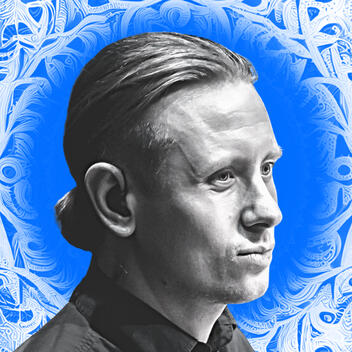
hi, i'm dan goldfield.
i studied with a monk for 5 years, meditated for 29,366 hours then married a hot neuropsychologist. mission: normalize wellbeing for 1 billion & 1 people.
when you're ready, here's how i can help you...
72 FREE TALKS & GUIDED MEDITATIONS
meditating solo feels hard in the beginning. if you need guidance, check out these highly-rated tracks for free.
4 weeks to 48X your meditation benefits. join a community of other dedicated truth-seekers and engage in this proven process for realizing ultimate wellbeing.
if you want to unlock elite performance, unshakeable confidence and genuine happiness as quickly as possible, apply to hear back from me within 24 hours.
not a subscriber?
join 650+ readers dedicated to realizing ultimate wellbeing (and improving their effectiveness, clarity and impact).
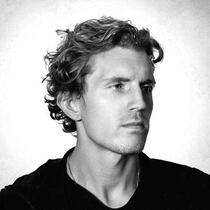
Dan Koe
7-Figure Brand Advisor
2M Followers
★★★★★
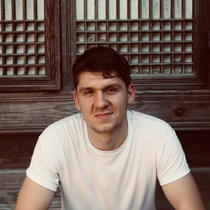
Takezo
Meditation coach
84K Followers
★★★★★

Alex Mathers
SELF-HELP AUTHOR
114K FOLLOWERS
★★★★★
"Dan's emails are so generous I almost feel a little guilty after reading them. Not to mention there's always at least one actionable takeaway I can use within the next five minutes to bring more wellness into my every day. You need to be following Dan's insights on this newsletter."
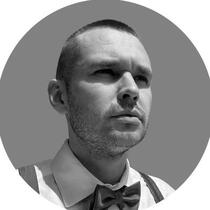
Thomas Haynes
Business Coach
76K Followers
★★★★★


